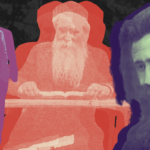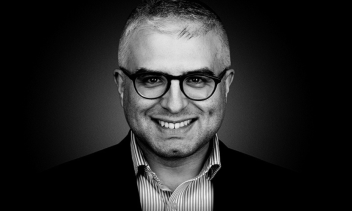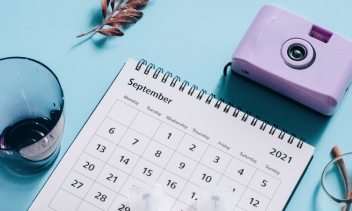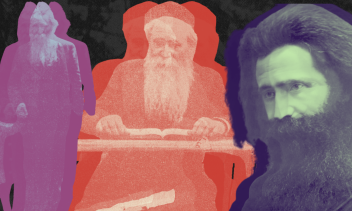“For last year’s words belong to last year’s language
And next year’s words await another voice.”
— T.S. Eliot (Four Quartets)
How do we find the words for a new year? Each year has a set of words, a language, that we use to speak to the moment that we are living in. In the narrow sense, we can find these words in headlines and trending tweets, the words that we will forever remember as being a part of the fabric of our lives this past year (vaccine, insurrection, variant). In the broader sense, the words and the way we use them form a broader fabric, a language of the year. We often don’t realize how the words we use constitute the language we speak until it’s all over, and beginning again, as the year ends. And as we reach this juncture, as we try to mind the gap between what was and what will be, we find ourselves between “last year’s words” which “belong to last year’s language” and “next year’s words” which “await another voice.”
We can turn back and think about the way we spoke this past year, the way we communicated, and the people that we were, and we can also think about the voice that we will have this coming year. How will we use our voice, our platforms, to build a better self, a better world inside and out? How will we magnify and support those whose voices we believe in? And on the other side – how have our words come together to form a language that we aren’t comfortable with? So many times, the words we string together, one after another, seem divorced from the person we are, until we find at the end of the year that the words became a language and the language became a self – our selves.
… the tendency towards shame, guilt, and self-blame is not just a symptom of self-reflection, but an occupational hazard.
So readers, fam, let’s mind the gap. Let’s think together about our words and our language, and maybe even our voice (in all honesty not sure how to work that part into this pseudo-sermon, please say hello at yehudafogel1@gmail.com or @yehudahamaccabi if you have any suggestions).
But how, we wonder? If the words and language are as slippery, as ephemerous, as they so often feel in our mouths, taking an honest accounting of them is no easy task. It’s my humble, biased, and yet deep belief that writing helps. Whether you fashion yourself a ‘writer’ or not, putting words on paper or screen helps us see parts of ourselves, and parts of our language, that are often less visible. Writing about your year, perhaps with a prompt (What am I proud of this past year? What pains me from this past year? What gives me hope for the coming year? Who was I this past year?), may be able to help you put to words some of the wordless feelings that bubble up during this time.
But remember, sweet reader, above all, that the tendency towards shame, guilt, and self-blame is not just a symptom of self-reflection, but an occupational hazard. Be kind with yourself. Forgive yourself, if only to show God how it’s done. The writer Anais Nin once said that she believes that “one writes because one has to create a world in which one can live.” As we put this past year to words, let us be kind in the world we construct, in the way that we look back, and forward, and inside.
To start this season of reflection on the words and language that we all use, I’m including in this Rosh Hashanah reader some of the words that I’ve used this past year to create a more meaningful world, along with one article on the communal nature of gratitude, as we come together in a community of prayer this holiday. The first was writing for this Rosh Hashanah, the second for the secular Rosh Hashanah of this past year, and the third is eternally interesting. I hope that we can all look together at the words we used, the language that we’ve cultivated for ourselves, as we build a world of kindness, together.








